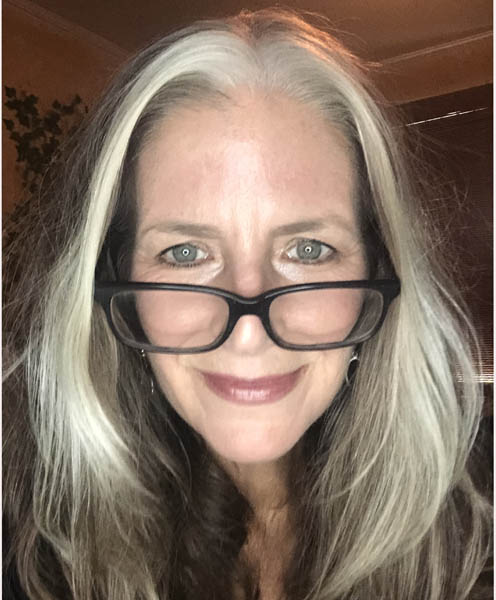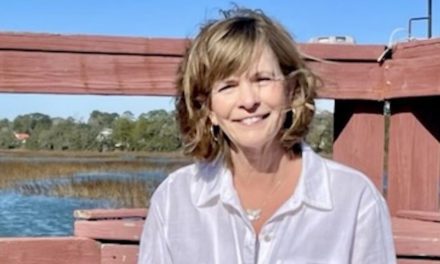I recently reconnected with an old friend from college – somebody I hadn’t seen or heard from in over 35 years. A mutual friend of ours had told her about this column, and she’d started reading it online.
After my last one, she felt compelled to reach out via email. Her note was delightful, and so touching, and included the following:
“After reading your last column on running out of things to say, I wanted to encourage you to be gentle with yourself. Everything you are doing involves giving of yourself and sharing yourself with others.”
Gulp. It’s amazing what a few kind words can do to turn your whole day around. I wrote back in gratitude, asking about the last several decades of her life and catching her up on mine. I mentioned that, along with Lowcountry Weekly – which is mainly arts, entertainment and culture-focused – my husband and I had also been publishing a more traditional local newspaper, The Island News, for the past five years.
She emailed me back, saying, “I fully believe that local, independent journalists are holding our democracy and our last shreds of truth and intelligent conversation in their hands. You are a hero, Margaret.”
Well, those words just about did me in. I literally felt tears stinging my eyes. I’m not sure if you’ve noticed – ahem – but journalists aren’t the most popular people these days. “Hero” is not a word often applied to us.
Much of the time, I don’t even like us. I’ve written reams about mainstream media bias, the resulting rise of conservative media (also biased, but openly so), and the divisions roiling this country, thanks, in no small part, to journalists and their/our ongoing failure to report the news fairly.
The more I learn about human psychology, the more I wonder if objective journalism is even possible. Everyone has their biases, and the best you can do is to recognize yours and try to adjust for them when reporting a story.
Mainly an opinion columnist, I don’t do much reporting, myself. But even with this column, I am always hyper-aware of my biases, always trying to push back against them. Ironically, I think my strongest bias – and this drives people crazy – is against strong bias. I have a deep-seated natural prejudice against gung-ho partisanship and ideological fervor. I have to actively fight that prejudice – and ignore the voice in my head that constantly asks “but what about…?” – in order to pick a side on any given issue, which people expect you to do when you call yourself an opinion columnist. It’s a vexation, and I often fail.
Which leads some folks to accuse me of “not standing for anything.” Or of “having no position.”
They’re wrong. I do have a position. It’s typically very near the middle. And almost everybody standing well to my left, or well to my right, feels like an extremist to me. It’s just my nature.
So, yeah. I’m strongly biased against strong bias. But at least I know it.
On a related note, there was a big story in the news, about the news, last week. A longtime editor at NPR published an essay on Bari Weiss’ Free Press website, taking his employer to task in a very public way.
The Free Press headline read: I’ve been at NPR for 25 Years. Here’s How We Lost America’s Trust. The subhead read: Uri Berliner, a veteran at the public radio institution, says the network lost its way when it started telling listeners how to think.
In the article, Berliner writes:
“It’s true NPR has always had a liberal bent, but during most of my tenure here, an open-minded, curious culture prevailed. We were nerdy, but not knee-jerk, activist, or scolding.
“In recent years, however, that has changed. Today, those who listen to NPR or read its coverage online find something different: the distilled worldview of a very small segment of the U.S. population.”
He then goes into detail about several major news stories – including Russiagate, the Covid pandemic, and Hunter Biden’s laptop – that NPR got wrong, or at least partly wrong, due to what he describes as a kind of well-intentioned “groupthink.”
None of this came as a surprise to me – nor to anybody who reads independent news sources – but it was fascinating to hear an insider’s take.
I posted the article on my Facebook page, saying, “As a longtime NPR fan, I find this essay both heartbreaking and inspiring. I’m heartbroken over what’s happened to NPR, but inspired by the courage and honesty of this ‘company man’ of 25 years who still loves his job, his colleagues, and good journalism. Maybe there’s hope yet.”
An interesting discussion thread ensued. And when I say “interesting,” I really mean “textbook.”
The conservatives in the thread mostly thought Berliner’s piece was “too little, too late.” The progressives bristled at his analysis and roundly rejected it. The moderates, like me, loved the piece. For us, it rang true to our own experience of NPR in recent years, and we found Berliner brave for writing it while still employed there.
I did wonder, however, if he could possibly keep his job. By the end of the day, the predictable backlash had begun, and two days later he was suspended without pay. A couple of days after that, Berliner resigned.
One woman in our Facebook discussion remarked that newspapers are always slanted, and that they always “reflect the owner’s views.” I could only laugh at that comment. It may be true of big city papers, but certainly not of The Island News. My husband and I have very little to do with what gets reported in our paper, or how, week in and week out. That’s our editor’s job. He does it well and we trust him implicitly.
The opinion page definitely doesn’t reflect this owner’s views; in fact, most weeks it’s too leftward-slanting for my taste. Then again, with my strong bias against strong bias, any slant would bug me. My fantasy opinion page would reflect a perfectly balanced mix of views – right, left, and center – but we just haven’t found the right (emphasis on “right”) blend of local columnists yet. We’re always on the lookout.
The truth is, while journalism is essential to a healthy democracy, most journalists are neither heroes nor villains. We’re just normal, well-meaning, flawed human beings, doing the best we can. Like you.







